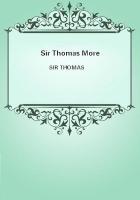"Not a bit; you know there are a lot of hot-heads talking separation and that sort of thing, and I want some level-headed fellow who is in with the working men to be there."And as it turned out it was a good thing for Mr. Blair and for the cause he represented that Ranald was present at the great mass-meeting held in New Westminster the next week. For the people were exasperated beyond all endurance at the delay of the Dominion in ****** good the solemn promises given at the time of Confederation, and were in a mood to listen to the proposals freely made that the useless bond should be severed. "Railway or separation," was the cry, and resolutions embodying this sentiment were actually proposed and discussed. It was Ranald's speech, every one said, that turned the tide. His calm logic made clear the folly of even considering separation; his knowledge of, and his unbounded faith in, the resources of the province, and more than all, his impassioned picturing of the future of the great Dominion reaching from ocean to ocean, knit together by ties of common interest, and a common loyalty that would become more vividly real when the provinces had been brought more closely together by the promised railway. They might have to wait a little longer, but it was worth while waiting, and there was no future in any other policy. It was his first speech at a great meeting, and as Mr. Blair shook him warmly by the hand, the crowd burst into enthusiastic cries, "Macdonald! Macdonald!" and in one of the pauses a single voice was heard, "Glengarry forever!" Then again the crowd broke forth, "Glengarry! Glengarry!" for all who knew Ranald personally had heard of the gang that were once the pride of the Ottawa. At that old cry Ranald's face flushed deep red, and he had no words to answer his friends' warm congratulations.
"Send him East," cried a voice.
"Yes, yes, that's it. Send him to Ottawa to John A. It's the same clan!"Swiftly Mr. Blair made up his mind. "Gentlemen, that is a good suggestion. I make it a motion." It was seconded in a dozen places, and carried by a standing vote. Then Ranald rose again and modestly protested that he was not the man to go. He was quite unknown in the province.
"We know you!" the same voice called out, followed by a roar of approval.
"And, besides," went on Ranald, "it is impossible for me to get away; I'm a working man and not my own master."Then the colonel, who was sitting on the platform, rose and begged to be heard. "Mr. Chairman and gentlemen, I ain't a Canadian--""Never mind! You can't help that," sang out a man from the back, with a roar of laughter following.
"But if I weren't an American, I don't know anything that I'd rather be." (Great applause.) "Four weeks ago I wouldn't have taken your province as a gift. Now I only wish Uncle Sam could persuade you to sell." (Cries of "He hasn't got money enough.
Don't fool yourself.") "But I want to say that this young man of mine," pointing to Ranald, "has given you good talk, and if you want him to go East, why, I'll let him off for a spell." (Loud cheers for the colonel and for Macdonald.)A week later a great meeting in Victoria indorsed the New Westminster resolutions with the added demand that the railway should be continued to Esquinalt according to the original agreement. Another delegate was appointed to represent the wishes of the islanders, and before Ranald had fully realized what had happened he found himself a famous man, and on the way to the East with the jubilant colonel.
"What was the great idea, Colonel, that struck you at Yale?"inquired Ranald, as they were fairly steaming out of the Esquinalt harbor.
"This is it, my boy!" exclaimed the colonel, slapping him on the back. "This here trip East. Now we've got 'em over the ropes, by the great and everlasting Sammy!" the form of oath indicating a climax in the colonel's emotion.
"Got who?" inquired Ranald, mystified.
"Them gol-blamed, cross-road hayseeds down East." And with this the colonel became discreetly silent. He knew too well the sensitive pride of the man with whom he had to deal, and he was chiefly anxious now that Ranald should know as little as possible of the real object of his going to British Columbia.
"We've got to make the British-American Coal and Lumber Company know the time of day. It's gittin'-up time out in this country.
They were talkin' a little of drawin' out." Ranald gasped. "Some of them only," the colonel hastened to add, "but I want you to talk like you did the other night, and I'll tell my little tale, and if that don't fetch 'em then I'm a Turk.""Well, Colonel, here's my word," said Ranald, deliberately, "if the company wish to withdraw they may do so, but my future is bound up with that of the West, and I have no fear that it will fail me. Istake my all upon the West."















